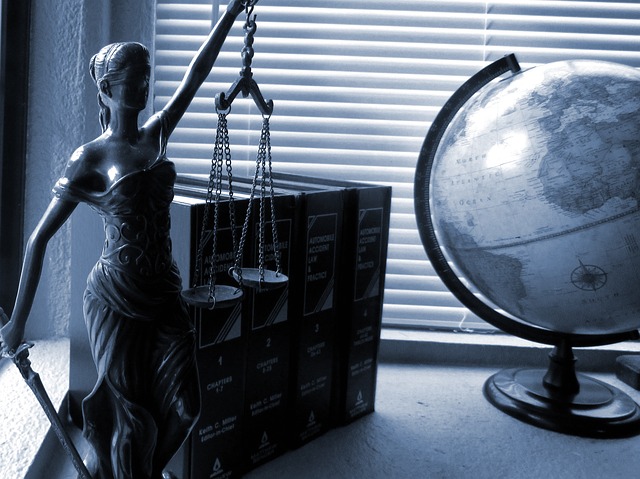By J.M. Phelps (Daily Caller)
In 2003, U.S.-led coalition forces entered Iraq, leading to the overthrow of Saddam Hussein and his government. In response to the power vacuum created by Hussein’s capture and execution, widespread sectarian violence exploded between Iraqi Shias and Sunnis. Iraq became one of the most dangerous places in the world after 2003. On September 16, 2007, an incident involving our government and a number of diplomatic security teams rocked the heavily-populated city of Baghdad. The fallout of that event is the unjust imprisonment of four men who continue to languish in prison despite sentences against three being ruled “cruel and unusual punishment,” and overturning of a murder charge against the fourth.
The security firm Blackwater was tasked with providing protection to a diplomatic team in Baghdad on that fateful September day. A massive IED explosion near Baghdad’s Nisour Square alerted the team – codenamed Raven 4 –as it entered the Square. A nearby Blackwater backup team — Raven 23 — was deployed to provide additional security to escort the diplomatic convoy to safety. The team began taking fire in what appeared to be a planned ambush. A white sedan matching the description of one earlier identified as a possible VBIED (vehicle borne improvised explosive device) approached the convoy and ignored orders to stop. A firefight ensued and some Iraqis were killed by members of the team. The Iraq government accused them of firing on unarmed civilians.
Regretfully, members of Raven 23 who risked their lives to protect U.S. government officials, were charged with a number of crimes as a result of these deaths, and remain in prison today. Their names are Dustin Heard, Evan Liberty, Paul Slough, and Nicholas Slatten. A fifth, Jeremy Ridgeway, was convinced by the Department of Justice (DOJ) to take a plea deal in the D.C. district court, establishing jurisdiction and venue in D.C. — a circuit which provided a friendly jury for the prosecution.
This was an example of “forum shopping” at its best. Nonetheless, presiding Judge Ricardo Urbina dismissed the case, ruling that the prosecution had engaged in a “reckless violation of the defendants’ constitutional rights.” A three judge appeals court panel later overturned Ricardo’s ruling. For reasons that remain unclear, the case was then quickly reassigned to DC District Judge Royce Lambert, and has remained under his purview since. Judge Lamberth ruled against defense motions and tolerated the government’s seven-year suppression of exculpatory evidence in FBI possession.
Heard, Liberty and Slough received 30-year sentences through a misapplication of criminal statutes that did not apply to their cases, and Slatten was convicted of murder and sentenced to life for a shooting he didn’t commit. Last year, an appeals court ruled the 30-year sentences as “cruel and unusual punishment.” While not dismissing the charges, the court called Lamberth’s sentence a “sledgehammer.” Slatten’s murder charge has been thrown out. However, all efforts to get these four men out of jail has failed. The government refuses to let them go.
According to former Blackwater vice president Bill Mathews, the Military Extraterritorial Jurisdiction Act’s (MEJA) intent is to place military contractors under U.S. law. The MEJA should not have applied to anyone in this case, as it was written specifically for those serving the Department of Defense. The Blackwater defendants were contracted by the Department of State.
These men of Blackwater were treated as thugs and gangbangers. According to 18 U.S. Code § 924, a drug trafficker charged with committing a crime with a fully automatic weapon would generate a mandatory minimum 30-year sentence. These men were contracted by our State Department with the responsibility of protecting diplomatic officials, and were carrying weapons supplied by the State Department and authorized under the contract. They were not drug traffickers. Those statutes should never have been applied, and convictions based on them should have been thrown out with prejudice.
The prosecution is required to provide exculpatory evidence to the defense as soon as they receive it, as deemed by the U.S. Supreme Court case Brady v. Maryland. In the case against Blackwater, the FBI was unable to show up to the ‘crime’ scene for weeks after the incident. For seven years, the FBI appears to have withheld a photograph of AK-47 rounds found at the scene. This photo may prove that Raven 23 had faced armed opposition, not unarmed civilians as the Iraqis claimed. It was turned over to the defense at the very end of the trial, leaving little time to utilize the evidence.
The government is required to acknowledge when a witness contradicts himself. The decision of U.S. Supreme Court case Giglio v. United States declares that witness testimonies that contradict each other must be pointed out to the defense. In a blatant Giglio violation, a witness’s trial testimony did not match his original witness statement, and it was not referenced or acknowledged to the defense.
Looking at all the evidence presented along with the facts lined up next to the defendants’ current predicament, one has to question whether the defendants in this case received a fair trial.
Support raven23.com
J.M. Phelps is a Christian activist and journalist based in the Southeastern U.S. He is also editor and publisher of the website Lantern of Liberty.
Originally published by The Daily Caller on Wednesday, February 14, 2018.
This column is printed with permission. Opinions expressed in columns published by Lantern of Liberty are the sole responsibility of the article’s author(s), or of the person(s) or organization(s) quoted therein, and do not necessarily represent those of the staff or management of, or advertisers who support Lantern of Liberty.

